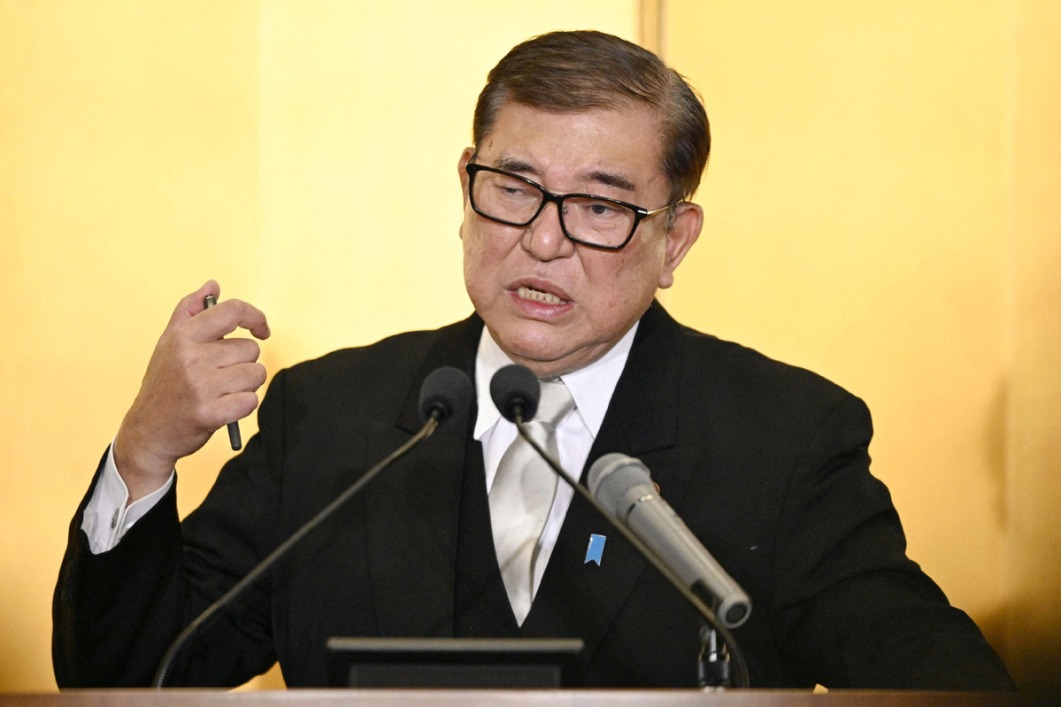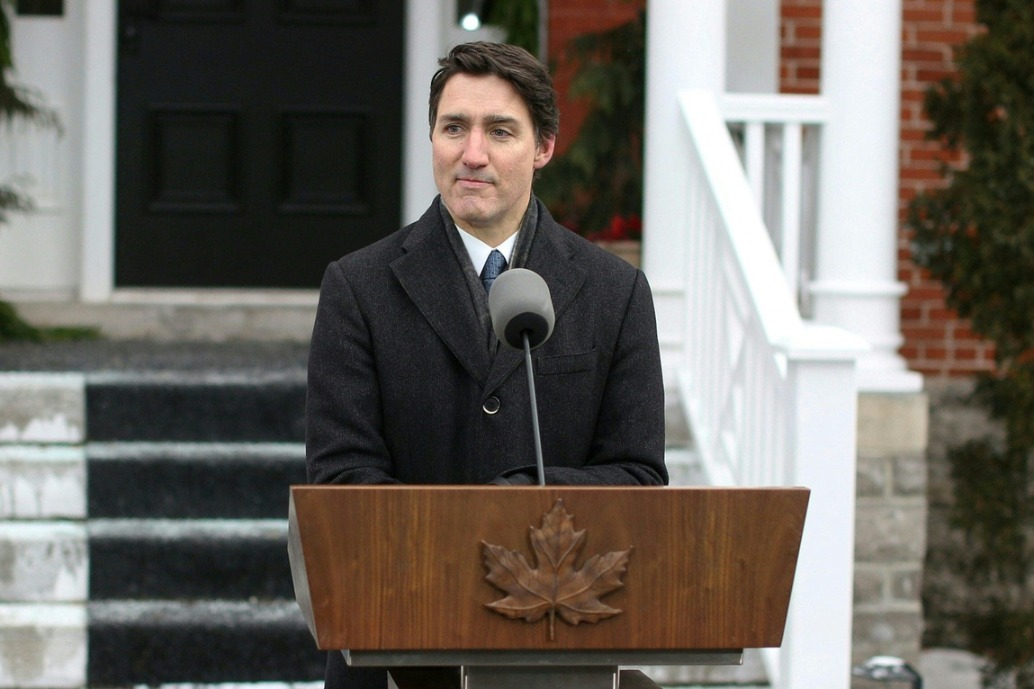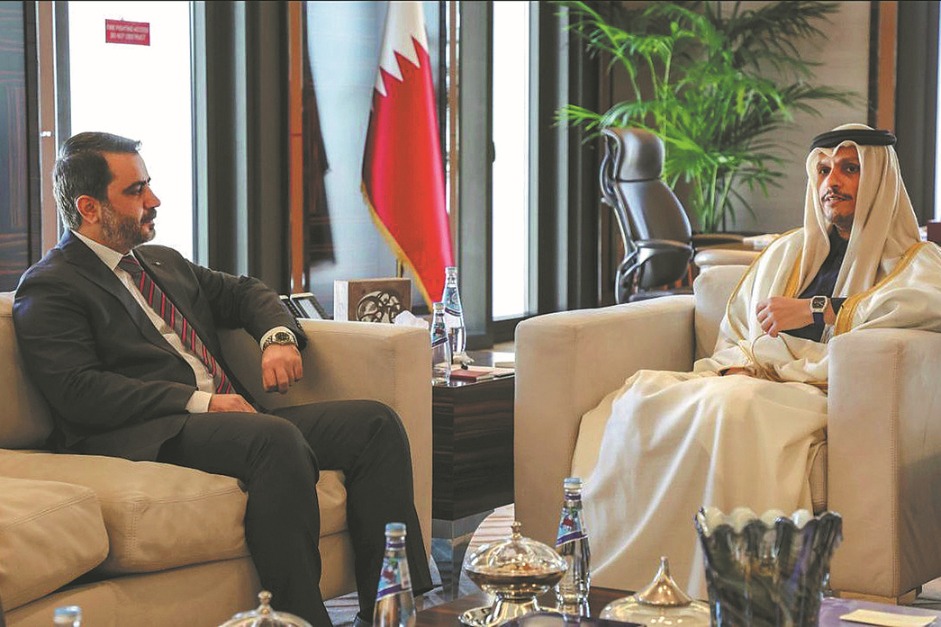What will Trump tell the world at Davos forum?

The news that US President Donald Trump will attend the 2018 World Economic Forum (WEF) in the Swiss resort of Davos came as a surprise to many, due to his populist and anti-globalization rhetoric.
WEF is a forum that champions globalization, global cooperation, global governance and trade liberation. Its theme this year is Creating a Shared Future in a Fractured World. All these do not seem to fit well with Trump's rhetoric, policies and actions.
Reuters reported on Sunday that German Chancellor Angela Merkel, who is still struggling to put together a government, is likely to join French President Emmanuel Macron in the WEF in what could turn into "an epic clash of competing world views" with Trump.
Besides Merkel and Macron, some 60 heads of state and governments are expected to attend the WEF from Jan 23-26. Chinese Foreign Ministry spokesman Lu Kang did not say which Chinese leader might attend the meeting.
"The Chinese side values the role played by the World Economic Forum in Davos as an important platform for countries to share their views on the macroeconomic issues in today's world," he said on Friday, adding that information on the Chinese delegation's attendance will be released in due course.
President Xi Jinping was the star at the 2017 WEF when many countries were troubled by the anti-globalization sentiment, in particular the UK's Brexit from the European Union and Trump's "America First" rhetoric.
Xi's speech that advocated globalization and free trade was widely covered, including by the US news media. It has been repeatedly quoted throughout 2017.
His most quoted words might be "Pursuing protectionism is like locking oneself in a dark room. While wind and rain may be kept outside, that dark room will also block light and air. No one will emerge as a winner in a trade war."
In fact, Xi's speech was comprehensive. He talked about the need to develop a dynamic, innovation-driven growth model, pursue a well-coordinated and interconnected approach to develop a model of open and win-win cooperation, develop a model of fair and equitable governance in keeping with the trend of the times, and develop a balanced, equitable and inclusive development model.
China's decision in 2017 to further open up its financial sector to foreign investors and to slash tariffs on the imports of a wide range of consumer goods; its holding of the Belt and Road Forum for International Cooperation in Beijing last May; its push for bilateral and multilateral free trade arrangements; and its support for global agreements and organizations such as the Paris climate accord and the United Nations are proof of Xi's pledges at Davos.
It would be interesting for people to listen to Xi's speech again before the 2018 WEF convenes next week. Almost every word still applies to the world in 2018 and beyond.
"We are not jealous of others' success; and we will not complain about others who have benefited so much from the great opportunities presented by China's development. We will open our arms to the people of other countries and welcome them aboard the express train of China's development," Xi said at Davos.
US politicians, whether Barack Obama or Donald Trump, have a tradition of blaming others, especially China, for US economic woes, in sharp contrast to Chinese leaders.
Trump has announced plans to withdraw from the Paris Agreement and the United Nations Educational, Scientific and Cultural Organization, cut funding to the UN and threaten to kill the Iran nuclear deal. He also withdrew the US from the Trans-Pacific Partnership and threatens to terminate the United States-Korea Free Trade Agreement and North American Free Trade Agreement if the other side did not give in with more concessions in amendment.
The Trump administration has challenged the authority of the World Trade Organization and adopted many punitive trade remedy measures that violate WTO principles, including initiating a Section 301 investigation into China's intellectual property policy and practice.
The Reuters story quoted Ian Bremmer, president of the consulting firm Eurasia Group, saying that "there are very few things in the world that unite countries as much as their antipathy towards Trump and what he is doing".
"In the United States, he may have 40 percent who approve of what he's doing. In the Davos crowd, it is closer to 5 percent," Bremmer said.
Contact the writer at [email protected]

































